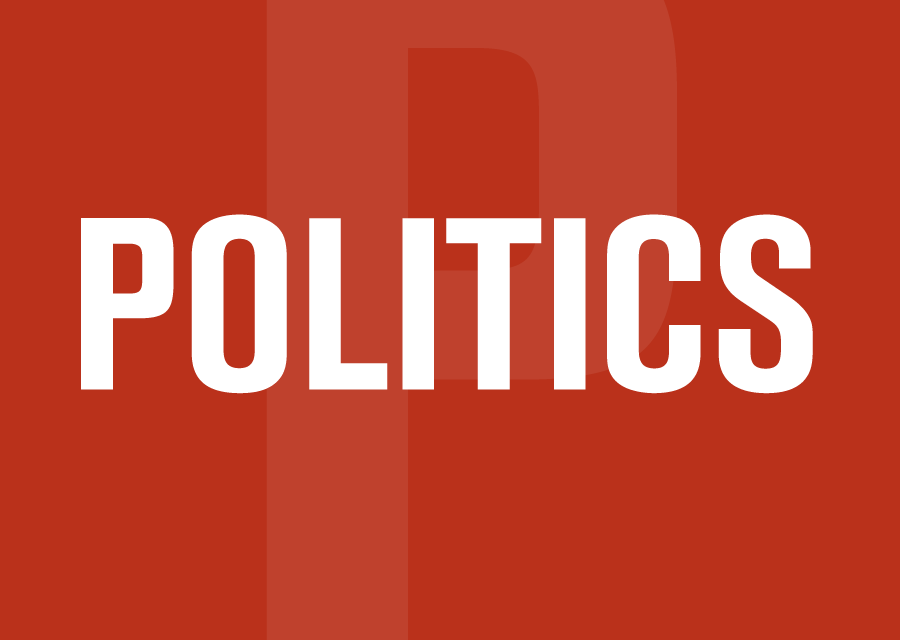Ever since the Newfoundland Liberals swept into power at the end of November, Atlantic Canada has been Liberal Land – four provincial Liberal governments added to the 32 Liberal MPs from the region elected in October. Earlier this month a meeting in Fredericton provided a glimpse of how things are going to be in this congenial new world. It was not a reassuring sight.
The Fredericton meeting brought together the three Maritime Premiers (and a snowed-in Dwight Ball on the phone from Newfoundland) with a squad of federal cabinet ministers, led by regional MPs Scott Brison of Treasury Board and Dominic LeBlanc, the House Leader and long-time friend of Justin Trudeau. The first sign that legendary Liberal arrogance is back (if it ever went away) was the decision by the host Premier, Brian Gallant, to take advantage of the presence of all these Liberal heavy hitters on government business to conduct some party business – a $250-a-plate fundraising dinner featuring the Premiers as guest speakers. Although Mike Duffy is in more than a spot of trouble for similarly mixing up who should pay for party and official gigs, the advent of sunny ways seems to have had a cleansing effect all around.
According a CBC report, New Brunswick cabinet minister Donald Arseneault mounted the following defense: “This is a unique opportunity, and if we want to give access to business stakeholders and whatnot to advance their projects, their causes, hey, rightfully so.” Now, the fact that the “business stakeholders” had to pay $250 a head to the Liberal party to “advance their projects” may differ from the liquor commission “tollgating” perfected by the Nova Scotia Liberals in the 1970s, but the distinction is not obvious.
But I digress from my main concern, which is not to attack the Liberals’ Achilles heel (as inviting as that is) but to monitor their performance in righting some of wrongs perpetrated by the Harper government. As discussed numerous times by the Observer, the Harper Conservatives manipulated the health transfers and equalization systems to favour the wealthier provinces, as well as proposing to limit health transfers to three per cent annual increases starting in 2017.
Response of Atlantic governments to this attack on the ability of their citizens to access quality health care has been tepid. They haven’t fundamentally challenged the funding changes that are costing both New Brunswick and Nova Scotia $25-$30 million per year in health transfers and tens of millions more in equalization. Instead, they made their stand on demographics. They joined Quebec and British Columbia to argue that any new funding arrangement to replace the 2004 health accord should take demographics into account and provide more money to provinces with older populations.
Campaign trail
On the campaign trail, Justin Trudeau made it sound like the Liberals cared about health funding, but his only commitment beyond a promise of $3 billion over four years directed to home care and seniors programs was “to sit down with the provinces immediately to start negotiating the future of the Canada Health Transfer.” The Oxford English dictionary defines “immediate” as “occurring or done at once or without delay.” Unless the topic is shoehorned onto the agenda at this week’s first minister’s meeting on climate change, the health accord negotiation pledge can be added to the growing list of Liberal broken promises.
To be fair, Trudeau never did commit to changing the funding formula to benefit provinces with older populations. But at least one provincial Liberal government left that impression. As the CBC reported, during the campaign New Brunswick Health Minister Victor Boudreau explicitly endorsed the federal Liberal campaign promise to negotiate “a long-term agreement on funding” that took into account the aging population of some provinces.”To have demographics included in the formula, so that’s part of the formula, is something that I think is very important.”
That was then, but now things are different. We don’t know what was said behind closed doors in Fredericton about including demographics in the formula. The agenda, according to Dominic LeBlanc, included population growth, international trade, climate change and “health care and services for seniors.” And on the latter topic, it seems the Grits were in agreement that topping up transfers for provinces with aging populations was just not on.
As the CBC reported at the meeting’s conclusion: “Atlantic premiers seem resigned to the idea that the federal Trudeau government is unlikely to change the formula for health transfer payments to help provinces with older populations. The premiers met Wednesday with several federal cabinet ministers, and emerged from the meeting saying there are other ways Ottawa can help cover the higher health care costs of provinces with aging populations.”
Brian Gallant, the host Premier, delivered the news that on the health transfer front in Atlantic Canada, there would be peace in our time. “We’re not just talking about `oh the population is getting older so we need more money for health care.’ We have to look at all of the mechanisms at our disposal.” The mechanisms cited by the New Brunswick Premier were straight from the Liberal campaign book – more money for home care was one mechanism. Gallant also came up with the novel suggestion that infrastructure spending may “counter the aging population” by creating jobs that make it possible for younger people to stay in the region. (Home care wait lists are long as it is – now seniors are expected to stay on hold until a 150-year out-migration pattern changes?)
McNeil on side
Without a change in the funding formula or a reversal of some of the Harper government plans, a little more money for home care is not going to make much difference. Three billion, spread over four years and distributed on a per-capita basis would mean about $20 million a year for Nova Scotia, less for New Brunswick. In neither province will those amounts even make up for the transfer cash lost if the three per cent ceiling comes into effect next year as scheduled.
In giving up any semblance of resistance to the federal government’s cavalier treatment of the region’s health funding challenge, Brian Gallant was joining his Nova Scotia counterpart who completed a capitulation hinted at last month after a one-on-one meeting with the Prime Minister. At the time, Stephen McNeil may have said that special consideration for provinces with older populations was still on the table. As reported by the pre-lockout Chronicle-Herald, McNeil posed the following head scratcher: “is there any way that we can now look at will come into the system in a new and innovative way to be able to make sure that those with an aging population get the benefit of that?”
Health Minister Leo Glavine later clarified his boss, declaring that arguing about the funding model isn’t a productive use of time. “We’ll just get into a back and forth with some of the other provinces who just don’t really have that (aging demographic like Nova Scotia.)” After the Fredericton meeting, McNeil was on the same page as Glavine, acknowledging the Liberal campaign talk is unlikely to become reality. “The funding formula on a per-capita basis is going to be very difficult for any government to make substantive changes to,” he said.
Perhaps it would be difficult, but it’s no excuse for the Liberal premiers not trying to make the case for change. After all, if there is an argument to be made for asymmetrical funding based on demographic factors, where better to make it than with seniors? To say that every province should get the same amount of funding for seniors regardless of demographics is a bit like saying every province should get the same per capita amount for, say, flood relief, regardless of the damage suffered.
On this issue, the Atlantic Premiers have allies. Both the Quebec and B.C. governments have made the case for age-based transfers, as has the Canadian Medical Association. But the failure of these four Liberal Premiers to engage with the federal government is either partisan politics or a belief that in Liberal Land, sunny ways will prevail. On the latter point, the federal budget, scheduled for March 22, may provide further insight.
-30-





